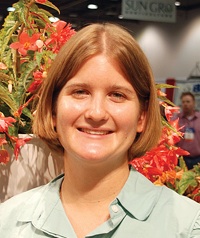
A Lesson in Learning — Jessica Boldt 2005
An internship can teach students more than how to stick cuttings, irrigate and load trucks.
Before starting a new project one that you’ve never done before – isn’t it nice to have a little background information or maybe even some experience in a segment of the project? Of course it is, and that is just what happened in the case of this year’s GPN/Nexus Intern Of the Year scholarship winner. This year’s winner was chosen by a select group of judges who seemed to have a pretty difficult time, as there were numerous qualified applicants, but it was clear that the judges made a good decision when I called the greenhouse where she worked. Everyone I talked to told me what a great job she did and what a wonderful person she is, even without me having to ask.
Much like many people in the industry, University of Florida student, Jessica Boldt, just about grew up in a greenhouse. Jessica’s mom and dad own a small nursery, South Brevard Nursery, in Melbourne, Fla., that is about 2 acres in size and has transitioned into more of a retail operation. “Growing up I would help with the production in the greenhouse and help on the retail end with the customers,” Boldt said. Jessica was not the only Boldt helper at the family nursery; she has a twin sister Jennifer, who also attends University of Florida and completed an internship this past summer/fall at Van Wingerden International, Fletcher, N.C., and ended up third in the race for our award. Love of horticulture must run thick in the Boldt blood, and it carried on with Jessica. “I’ve grown up around plants my entire life, working with them all the time,” Boldt said. “I just knew that it was something I wanted to continue doing. It’s a love for me.”
“I’ve known Jessica for a long time,” said Jim Barrett, professor at University of Florida. “She’s been coming to our poinsettia field trials since she was in about sixth grade. It’s been great to see her mature and grow.”
So, when it came time for college Boldt decided to continue her education at the University of Florida. “University of Florida has one of the best horticulture programs in the United States,” Boldt said. “And it was also in state, so it was close to family.” While at the University of Florida, Boldt was assigned an academic adviser and then signed up for a class with Barrett. “I had Dr. Barrett as a professor last fall (2003), and he knew my love of plants and my background,” Boldt said. “He recommended that I apply for my internship, helped facilitate setting up my internship and has been my adviser while I’ve been on my internship.”
When deciding on the place, Boldt considered Barrett’s presence in the industry and the ability to work his contacts. “I told him (Barrett) that I was looking for an operation that was not in Florida, produced greenhouse crops and was a larger-scale operation,” Boldt said. “He looked into different contacts and told me ‘I could send you to California, but now is not the right time; I could send you to Canada, but since that is international we would have some [legal] issues; I think the best fit for you right now would be White’s [Nursery & Greenhouses].'”
“I thought White’s would be best for her since she’s from a small nursery that does potted plants,” Barret said. “I thought she needed some experience in large potted production.”
The Internship Experience
So, Boldt was off to Chesapeake, Va., in June 2004 to complete a six-month internship. Starting a new job is always nerve-racking, but for Boldt this was a new experience in many ways. “This was my first time being away from home for an extended period of time on my own and working for someone besides my parents. The nursery was my only job through high school,” Boldt said. “So I walked in the first day, and they asked me to fill out an application for employment. I thought, ‘Okay I can do that,’ and then they introduced me to my first supervisor, and she made me feel right at home. I just knew that it would be a nice fit for me.”
One thing Boldt did not have to be too nervous about was being the only intern. She was the only American intern at the time; there were 3-4 other interns from foreign countries, but communication between everyone at White’s was positive.
Communicating with the Spanish-speaking workers at White’s was another learning experience for Boldt. “One thing that surprised me was how fast Spanish comes back to you if you’ve forgotten it,” she said. “I had four years [of Spanish classes] in high school and one semester in college, but then there were two and a half years where I didn’t speak a word of it. The Spanish-speaking workers were very welcoming, and if you attempt to learn the language they love to teach you. So by the time I left we were having conversations.”
Another aspect of Boldt’s internship that surprised her was how much responsibility she held as an intern. “I would go in the morning and Bob Bailey, the head grower, would say, ‘Jessica, today we’re doing lilies, and you’re going to be in charge. There are your bulbs; there are your pots; there is your soil; there are your workers; make sure it gets completed,” Boldt said.
“I had her plant bulbs one time and she did it right and counted right so I gave her more, because I knew she could handle it,” Bailey said. But he didn’t leave her out to dry. “He said to make sure I supervise [the other workers] and to make sure [the lilies] got planted correctly. He told me to walk alongside the benches, set the lilies down on the bench, call someone to get them watered in and take the count for inventory, and then he told me, ‘if you need something this is my phone number.'”
First Jobs
I’ll bet many of you reading this are wondering if Boldt has been snatched up yet. Well, the answer is no. But it won’t take long. “I’d hire her tomorrow if I could,” Dailey said. But, Boldt hasn’t decided yet whether she would like to continue with her studies after she graduates in December 2005 or begin working. “Right now my idea is to go out into the job field,” Boldt said.
Another benefit to an internship is to find out what you want. “Right now, White’s might be a little on the large end for me. I think I may look for a smaller operation to start out with,” Boldt said. “But, I do know that I want to be a greenhouse production manager.”
After Boldt’s experience and as a soon-to-be college graduate, she thinks most college Á graduates will be looking for a starting place. “I think they will be looking for a place where they can improve the skills they learned in college and a place where they have room to move up to management,” Boldt said. “They shouldn’t be afraid to start out towards the bottom, knowing they have the opportunity to advance.”
Is it worth it?
“The experience [of an internship] is priceless because the classes you have at a university are more about concepts and what you can do with them and how you can apply them,” Boldt emphasized. “It’s very important to have an internship where you can apply those concepts and see how they work in certain situations and not others. It’s just the best learning opportunity you can have because they expect you to make mistakes and expect you to ask questions like why they’re doing things and if those things are actually working.”
So, any advice from an experienced intern? “Make time for a 6-month internship, because when you have six months you don’t just get to see one crop go through the greenhouse, you get to see multiple crops [turn] and the planning involved with keeping the crops separate and how they rotate through the space,” Boldt suggested. “Summer internships are great because you don’t have to take time off from school, but I feel that a 6-month internship is much more rewarding. You get an extended period in each rotation so you get to learn more in-depth not just an overview.”
From an employer’s perspective, Bailey expressed how important it is for an intern to come in willing to learn. “They don’t need to know everything when they get here,” he said. “Start at the bottom and learn.”
Boldt also has a suggestion for companies looking for interns. “Be willing to set aside time each week to discuss their progress. Be willing to set aside a block of time, say an extra 1?2 hour for lunch and make it a lunch meeting or something like that when they can discuss what’s been going on, what they’re getting out of it and what they can hope to continue to get out of it.”
You’ve heard it before, so let’s make this short and sweet just to remind you: Internships are a win-win situation. The intern gets a priceless and extraordinary learning experience they will most likely use forever. The greenhouse gets some extra help and a possible future employee, and it contributes to this amazing industry where help, advice and friends are just around the corner.

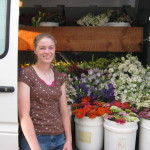

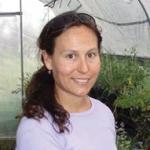
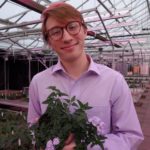
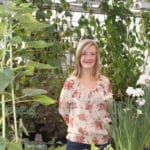

 Video Library
Video Library 




















